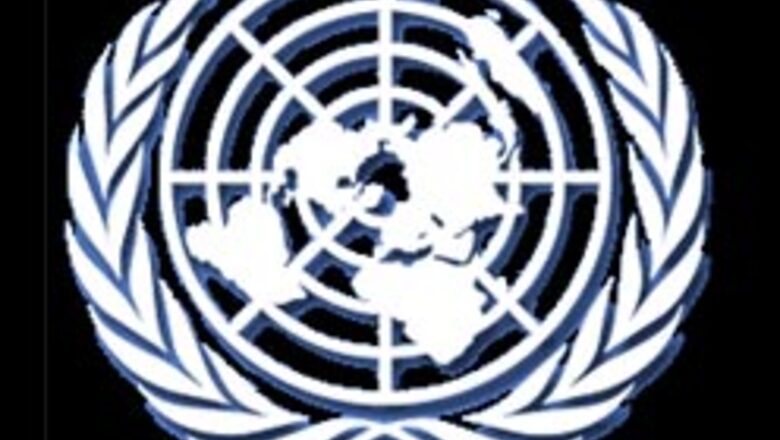
views
United Nations: After a decade and a half of backroom argument, the world's nations launched talks on Thursday on expanding the powerful UN Security Council from 15 members to reflect present-day realities.
Diplomats said the negotiations among the 192 U.N. member states were likely to stretch at least into next year and might not come up with a definitive solution even then.
The council, authorized by the UN charter to impose sanctions and dispatch peacekeeping forces, has five permanent veto-holding members: the United States, Russia, Britain, France and China.
It also has 10 members with no veto power who are elected on a regional basis for two-year terms before being replaced by others. The number was set in 1965, after standing at six since the United Nations was founded after World War II.
Developing countries have long resented the clout of the veto-holders on the council, whose composition stems from the post-war balance of power. Most nations agree the body needs to be enlarged, but there is no consensus on how.
The negotiations, chaired by Afghan Ambassador Zahir Tanin, got off to a low-key start with a closed meeting at which UN officials said member state envoys discussed procedural issues. Substantive negotiations will begin next month, they said.
A world summit in 2005 said reform of the Security Council would make it "more broadly representative, efficient and transparent and thus ... further enhance its effectiveness and the legitimacy and implementation of its decisions."
But regional rivalries and a concern by the big powers that their preeminence should not be diluted are likely to drag out the talks on key details of how to achieve that goal.
Numerous plans have been put forward in the past, differing over how many new seats should be added, who should have them, whether they should be permanent, semipermanent or time-limited and which, if any, new states should get the veto.
Right of veto
But Ambassador Thomas Matussek of Germany, one of several countries bidding for a permanent seat, said he believed there was now more chance of a result because of demands for "global governance" as a result of the world financial crisis.
PAGE_BREAK
"The question is, do you want this world run by G13, G15, G20, or do you want it run by the only legitimate global institution we have? And that is the UN," he told reporters.
One proposal that has long been discussed would give Germany, Japan, India, Brazil and two African states permanent seats but without an immediate right of veto. There would also be four new non-permanent seats from around the world.
A rival plan would just add 10 new non-permanent seats. That is supported by, among others, Italy and Pakistan, who want to stop permanent seats going to Germany and India respectively.
Many other variants have been suggested. The United States has said it supports permanent membership for Japan and possibly unidentified others, but Tokyo's cause has run into opposition from China and South Korea.
France and Britain last year proposed a temporary fix that would be revisited after a few years. French President Nicolas Sarkozy said last month that could unblock an issue he said was "not only not moving forward but is moving backwards."
A UN working group preparing the negotiations said last year: "We are convinced that a 'big bang,' an all-encompassing solution, is not possible, and that only a realistic approach that allows agreement on what is achievable in the near term ... is the way to move forward."
Committees began in 1994 to discuss setting up talks on expanding the council but bogged down in disputes on how they would work. Their launch now follows a push by the last two General Assembly presidents, Srgjan Kerim of Macedonia and the current incumbent Miguel D'Escoto of Nicaragua.


















Comments
0 comment